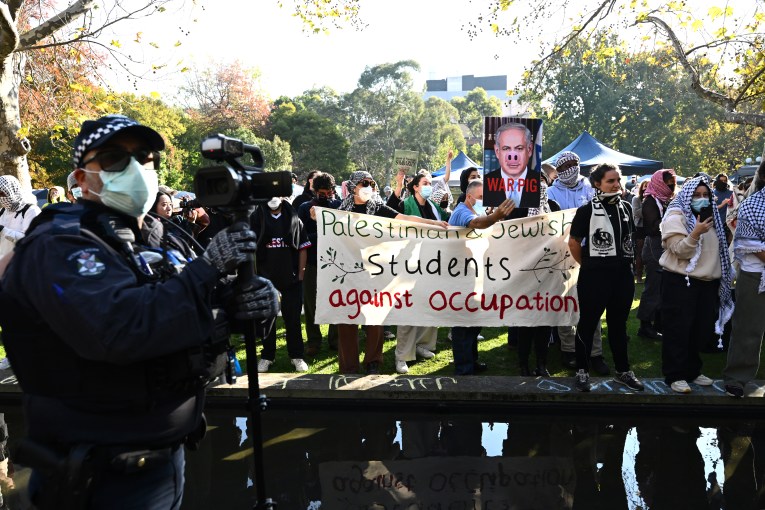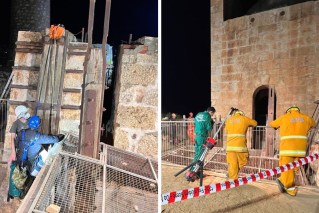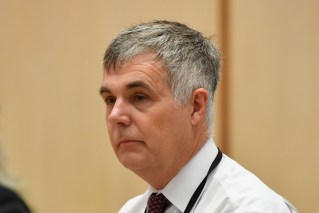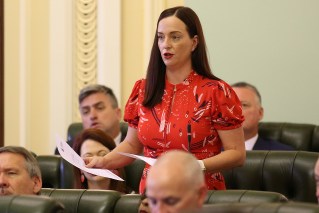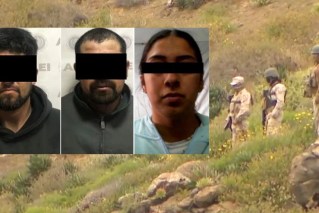More strict lockdowns will sweep across Victoria, with businesses such as clothing shops, pubs and hotels to shut under new state government rules.
Following Premier Daniel Andrews announcing Stage 4 lockdowns on Sunday, he unveiled a long list of changes to businesses across Melbourne on Monday.
Three categories of business have been implemented, with some forced to slow down their operations or close entirely. Mr Andrews said if the new rules did not work, Victoria might need an even tougher lockdown.
The Premier also confirmed Victoria had logged another 429 virus cases and 13 deaths in the past 24 hours.
“Under Stage 4 stay-at-home restrictions, the default is that workplaces in metropolitan Melbourne are closed unless the workplace is part of a permitted industry,” a government document reads.
“All Victorians are required to work from home, except where this is not practicable.”
On Monday, Mr Andrews announced essentially “all” retail businesses in Melbourne will shut completely for six weeks.
“Honestly, this will be an imperfect process,” he conceded.
“But what is clear is that if we don’t do this now, if this doesn’t work, then we’ll need a much longer list of complete shutdowns. It’s hard to imagine what a Stage 5 might look like. But it would radically change the way people live.”
“Not just rules on when and where you can go shopping – but restrictions on going shopping at all.”
The only businesses allowed to remain open will be supermarkets and grocery stores (including all food and liquor shops), fuel suppliers, pharmacies, post offices, hardware, maternity supplies, disability and health equipment, motor vehicle parts for emergency repairs, and retailers fulfilling online orders.
Statement from the Premier on business restrictions: pic.twitter.com/ktX49qJ4hU
— Dan Andrews (@DanielAndrewsMP) August 3, 2020
Those closed businesses will have to shut from 11.59pm Wednesday to public customers, but will be able to offer ‘click and collect’ services or delivery. The measures will last until mid-September.
Hardware and gardening stores will closed, except for those “where supplying permitted service or industry”.
“You will no longer be able to go into a Bunnings store but you will be able to collect goods without making contact with anybody,” Mr Andrews said.
Supermarkets and grocery stores, bottle shops, pharmacies, post offices, petrol stations and agricultural retailers will also be allowed to remain open.
“That means people do not need to be going and buying six weeks worth of groceries,” the Premier said.
Accommodation, pubs and bars, clubs and nightclubs will close. Cafes and restaurants will be allowed to trade, but only for takeaway service.
New building construction will be stopped for six weeks, except for critical infrastructure and sites that have already started work.
Abattoirs, which have been a source of infection problems, will have their workforce capacity cut back by a third, and workers must wear protective gear.
“There will be some of the most stringent safety protocols that have ever been put in place in any industrial setting. Those workers will be essentially dressed as if they were a health worker,” Mr Andrews said.
“Gloves and gowns, masks and shields. They will be working in one workplace only, they will be temperature checked, they will be tested.”
He said further announcements would be made on Tuesday about “significant boosts in penalties, significant boosts in enforcement”, flagging using more Australian Defence Force personnel to help enforce the lockdowns.
“These are not easy decisions,” the Premier said.
Businesses affected by the lockdowns will be able to apply for government grants – $5000 for those in regional parts of the state, and $10,000 in Melbourne and neighbouring Mitchell shire.

